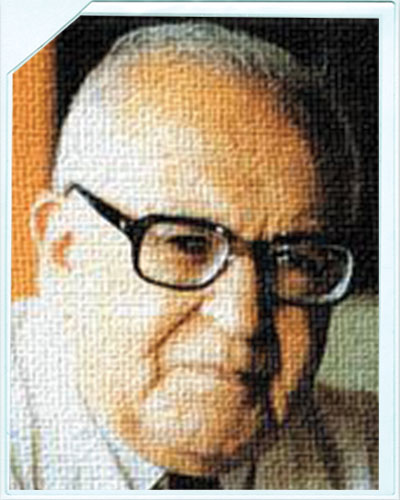Ekrem Kadri UNAT 1914 – 1998

He was born in 1914 in Ankara. He graduated from Istanbul University Faculty of Medicine in 1937. He became an assistant to the Institute of Microbiology, Parasitology and Epidemic Information. In 1940, he passed the specialty examination at the institute and received the title of bacteriologist. In 1942, he became associate professor of microbiology, parasitology and epidemics with his thesis “Strength of Ascarid Eggs with Embryon”. He applied parasite screening first the first time in Turkey at Darülaceze Hospital. He was sent to United States in 1946 and worked with Fred D. Weidman at the Dermatology Research Laboratories of the University of Pennsylvania Medical School in Philadelphia, where he studied medical mycology. He received public health education at the Department of Hygiene and Public Health at John Hopkins University and in 1948 received the title of “Master of Public Health”. He has worked in virus and bacteriology laboratories in different states in the USA. He returned to Turkey in 1949. He started to work at the Institute of Microbiology, Parasitology and Epidemic at Istanbul University. In 1951, he established the laboratory of the World Health Organization's Tuberculosis Maturation and Demonstration Center. In 1958, he was appointed as professor and director of the Parasitology Institute, which he founded. During his fifty-year assignment in medical faculties, he lectured close to 15,000 students and trained many microbiologists. He was the president of the Turkish Medical History Association between 1984 and 1989. He received the Süheyl Ünver award in 1987 for his contributions to the history of medicine. Unat spoke German, English and French. He passed away in İstanbul. 35 copyright books, 10 monographs, 15 meeting books, 10 congress reports and 360 articles were published. His works include Medical Helminthology, Medical Protozoology, Medical Mycology Textbook, Medical Parasitology, Bacteriology and Virology in the Ottoman Empire, Medical Zoology and Parasitology in the Ottoman Empire, War on Infectious Diseases and Islamic Religion and Basic Microbiology.